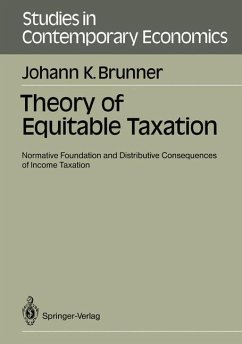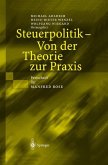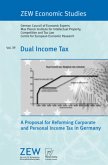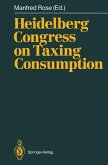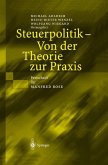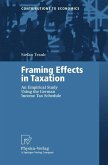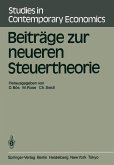This study offers a systematic analysis of basic questions relating to equitable income taxation. Of course, a definite solution, resting on scientific arguments, cannot be expected for this important field of government activity. However, what is possible, is an exhaustive dis cussion of various aspects of equitable income taxation, thus preparing the ground for reasonable political decisions. I hope that the present book will contribute to this continuing discus sion, presenting results from modern social-choice theory and optimum taxation theory in order to gain further insights into the problem of income taxation. On a fundamental level, social-choice theory is applied in order to in vestigate the normative foundation of different tax rules. Arrow's im possibility theorem forms the starting point of the analysis; as was shown by recent contributions to social-choice theory, this impossibi lity result can be overcome if various degrees of interpersonal utility comparisons are admitted. Using this approach, one can work out the general norms of equity behind familiar tax rules. As a special point, the traditional principle of equal proportional sacrifice will be given a social-choice theoretic foundation in this book. The second level on which tax rules can be discussed, concerns their respective consequences in concrete taxation models. TWo such models are specified in this study, the first one takes gross income of the taxpayers as given, it is contrasted with the second, more complex mod el, where the individual labour-leisure decision is taken into account.
Hinweis: Dieser Artikel kann nur an eine deutsche Lieferadresse ausgeliefert werden.
Hinweis: Dieser Artikel kann nur an eine deutsche Lieferadresse ausgeliefert werden.

